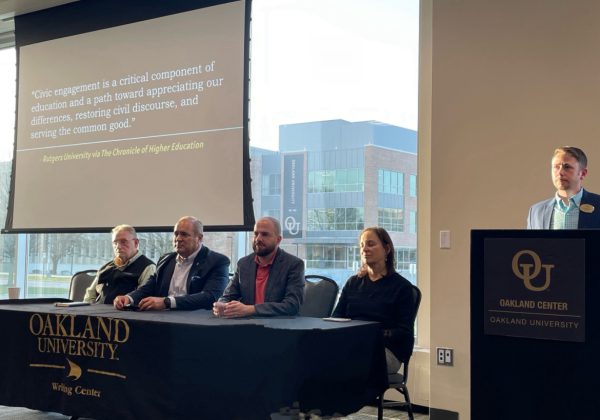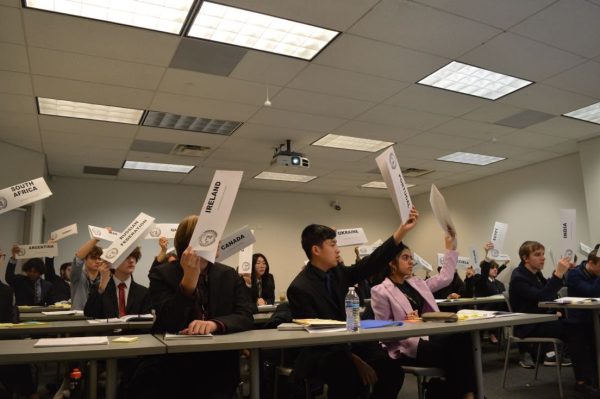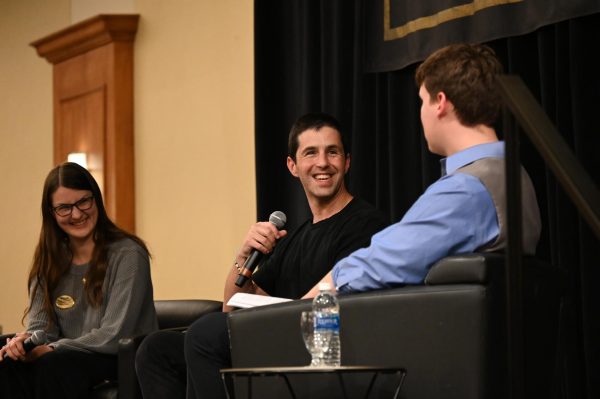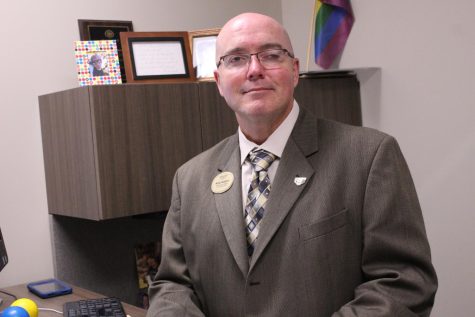Doris Kearns Goodwin gives Trump advice in Varner Vitality Lecture
Doris Kearns Goodwin speaks at “How Did We Get Here: The First 100 Days of an Unprecedented Presidency.”
Presidential historian Doris Kearns Goodwin visited Oakland University on Thursday, April 13 as the 2017 Varner Vitality Lecture speaker.
Goodwin earned her Ph.D. in government from Harvard University and has written a number of books, including the book that served as the historical basis for Steven Spielberg’s 2012 film “Lincoln.”
Goodwin’s lecture was titled “How Did We Get Here: The First 100 Days of an Unprecedented Presidency.” During her speech, she used her expertise on three former U.S. President, Abraham Lincoln, Theodore Roosevelt and Franklin Roosevelt, and provided 10 pieces of advice she believes they would give President Donald Trump.
1. Resilience is the great key to leadership.
Goodwin noted that, when asked about his temperament, Trump said he had the best of any previous presidential candidate because he always wins.
However, Goodwin doesn’t think this is a selling point. She pointed out that our very best presidents have failed, sometimes many times.
Lincoln was raised through adversity, losing his mom at only nine years old and his first love at 22. According to Goodwin, Lincoln found himself haunted by the idea of death and driven by the desire to create a legacy that would outlive him. This desire drove him through his depression and many failures.
Teddy Roosevelt lost his mother and wife on the exact same day, while FDR suffered from paralysis due to polio. All three of these presidents had to overcome adversity, and, as Goodwin put it, “with resilience they have conquered themselves.” She believes the best way Trump can move forward is to accept his defeats and use them to fuel his desire to be better.
2. Surround yourself with people who will argue with you, provide diverse perspectives and question your assumptions.
Lincoln surrounded himself with his biggest rivals, while FDR had his wife Eleanor, who he called “a welcome thorn in his side.”
Goodwin said she was encouraged when watching the confirmation hearings of Trump’s cabinet choices, as many were willing to disagree with some of Trump’s ideas. For example, Secretary of Defense James Mattis said the U.S. must honor its nuclear deal with Iran.
Trump’s response to these disagreements was also encouraging to Goodwin.
He tweeted: “All of my cabinet nominees are looking good and doing a great job. I want them to be themselves and express their own thoughts, not mine!”
This appears to suggest Trump is willing to surround himself with people who have the potential to change his mind.
3. Create a culture that inspires and motivates the people on your team.
Lincoln’s staff would commonly find notes praising them for their recent actions. Teddy Roosevelt motivated his colleagues through his own work ethic, saying his accomplishments came from having heart rather than extraordinary qualities.
Goodwin says, from examining Trump’s first months in office, he is a very hard worker, as well. Her advice is that Trump should find a way to let his work ethic diffuse to his team members.
4. Shoulder blame for your subordinates’ failures.
Goodwin told the story of Lincoln standing by his secretary of war, Edwin Stanton, who was responsible for poor war contracts that resulted in the deaths of many soldiers. Lincoln wrote a public letter to the country accepting responsibility for Stanton’s actions, saying they were a result of his own orders to move quickly.
Goodwin is interested to see how Trump handles similar situations of failure within his own administration. Will he shoulder the blame or look to someone else?
5. Keep growing. Take time to be self-reflective, learning from your failures and mistakes.
This piece of advice comes from Lincoln’s, Teddy Roosevelt’s and FDR’s abilities to turn their failures into success by examining what they had done wrong and making adjustments for the future. None were error-free, but they could not live with their mistakes until they’d found what they could learn from them.
Goodwin used Lincoln as an example, quoting him as saying, “When anything goes wrong, as long as I can know what it is, then I can believe I’m smarter today than I was yesterday, and then I can go to sleep.”
Goodwin suggests Trump take the time to really examine the failures that have already come in his first 100 days in office, such as the executive order of the Muslim ban and the failure to repeal and replace Obamacare. Goodwin said Trump should have instead focused on two of his most-popular campaign promises: infrastructure projects to create jobs and corporate tax cuts to drive the economy.
6. Control your emotions.
“Here, more than anywhere, I think President Trump can learn from his predecessors,” Goodwin said.
Each president had his own rituals to release his anger without unleashing it to the world.
Lincoln would write what he called a “hot letter,” which he would never send.
FDR’s speeches would go through six or more drafts. The first draft would contain his full thoughts regarding what and who had angered him. From there, each draft would become softer and less specific. The final draft would have no trace of his original anger, but he would feel better after letting it out.
Goodwin’s specific advice for Trump got laughs from the audience. She suggested he get two Twitter accounts: one for when he’s happy and one for when he needs to get his anger out.
7. Stay connected to the people you serve.
Lincoln made visits to Civil War battlefields, and Teddy Roosevelt spent 12 weeks of the year on the road. These presidents made extraordinary efforts to ensure they never forgot the people who had voted for them.
Goodwin suggests Trump makes it out of Washington as often as he can, allowing him to “be one with the people.”
8. Master the age’s style of communication.
Lincoln was president in the time of the written word, and his speeches were articulated beautifully, then printed in full in newspapers to be distributed throughout the country.
Goodwin said Teddy Roosevelt’s style of speaking was widely appreciated in his time.
“He had an instinct for memorable phrases,” Goodwin said. “Teddy mastered the style of speaking for the newspaper age.”
FDR, however, had a conversational tone ideally suited for the radio age. He mastered this art of speaking and used it in his fireside chats to explain his decisions directly to the American people.
Goodwin said, for Trump, mastering the age’s communication may mean mastering the art of social media.
9. Relax, replenish your energy and shake off anxieties.
For Lincoln, it was the theatre. For Teddy Roosevelt, it was exercise. For FDR, it was a cocktail hour where no one was allowed to speak of the war.
Goodwin noted that, though Trump criticized Obama for the same thing, if he is finding that escape by playing golf and visiting his home in Mar-a-Lago, he should do so.
10. Leave behind a legacy that shows the moral aspect of your leadership.
Goodwin said Lincoln, Teddy Roosevelt and FDR left legacies through programs and legislation that “advanced the laws of liberty, economic opportunity and soulful justice.”
She said what made Lincoln so great were his morals and his integrity, and it is on these things that we should judge our presidents.












